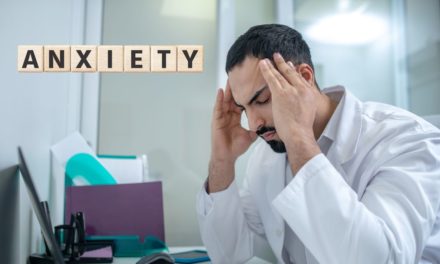Introduction
Mental disorders, also known as psychiatric disorders or mental illnesses, encompass a wide range of conditions that affect a person’s thoughts, emotions, behavior, and overall well-being. These conditions can vary in severity and impact, and they are more common than many people realize. In this article, we will provide a comprehensive overview of mental disorders, including common types, potential causes, impact on individuals, and effective treatment approaches. By fostering awareness and understanding, we aim to promote empathy, reduce stigma, and encourage early intervention for individuals living with mental health challenges.
Understanding Mental Disorders
Mental disorders refer to a diverse group of conditions that can affect a person’s mental and emotional health. They can arise from various factors, including genetic, biological, psychological, and environmental influences.
Common Types of Mental Disorders
- Anxiety Disorders: Anxiety disorders, such as generalized anxiety disorder (GAD) and panic disorder, involve excessive worry and fear.
- Mood Disorders: Mood disorders, including major depressive disorder (MDD) and bipolar disorder, cause disruptions in mood and emotions.
- Schizophrenia Spectrum and Other Psychotic Disorders: Schizophrenia and related disorders affect thoughts, perception, and behavior.
- Eating Disorders: Dietary issues, similar to anorexia nervosa and bulimia nervosa, include unusual dietary patterns and self-perception concerns.
- Substance Use Disorders: Substance use disorders are characterized by problematic use of drugs or alcohol.
- Attention Deficit Hyperactivity Disorder (ADHD): ADHD is a neurodevelopmental problem portrayed by mindlessness, hyperactivity, and impulsivity.
Potential Causes of Mental Disorders
Mental disorders can arise from a combination of factors, including:
- Genetic predisposition
- Imbalances in brain chemicals (neurotransmitters)
- Traumatic experiences or stressful life events
- Environmental factors and social influences
Impact on Individuals
Mental disorders can significantly impact an individual’s daily life, relationships, and overall functioning. They may lead to difficulties in work or school, social isolation, and reduced quality of life.
Seeking Professional Help
Early recognition and intervention are crucial for individuals experiencing symptoms of mental disorders. Seeking professional help from a mental health specialist, such as a psychiatrist or psychologist, can lead to timely diagnosis and appropriate treatment.
Treatment Approaches for Mental Disorders
- Psychotherapy (Talk Therapy): Psychotherapy involves discussions with a trained therapist to explore emotions, thoughts, and behavior patterns.
- Medications: Medications, such as antidepressants or antipsychotics, can be prescribed to manage symptoms.
- Cognitive-Behavioral Therapy (CBT): CBT is a specific type of therapy that helps individuals identify and modify negative thought patterns and behaviors.
- Support Groups: Support groups provide a sense of community and understanding for individuals living with mental disorders.
- Lifestyle Changes: Engaging in regular exercise, maintaining a balanced diet, and getting enough sleep can support mental well-being.
Reducing Stigma and Promoting Empathy
Educating society about mental health and challenging stigma is essential to create a compassionate and supportive environment for individuals living with mental disorders. Empathy and understanding can go a long way in promoting recovery and well-being.
Conclusion
Mental disorders affect millions of people worldwide, impacting their lives and those of their loved ones. By recognizing the various types, understanding potential causes, and promoting early intervention, we can foster empathy and reduce stigma associated with mental health challenges. Effective treatment approaches, including psychotherapy, medication, and support groups, offer hope for recovery and improved quality of life. Together, let us prioritize mental health, raise awareness, and create a supportive space where individuals with mental disorders are encouraged to seek help, embrace their journey, and live fulfilling lives.










